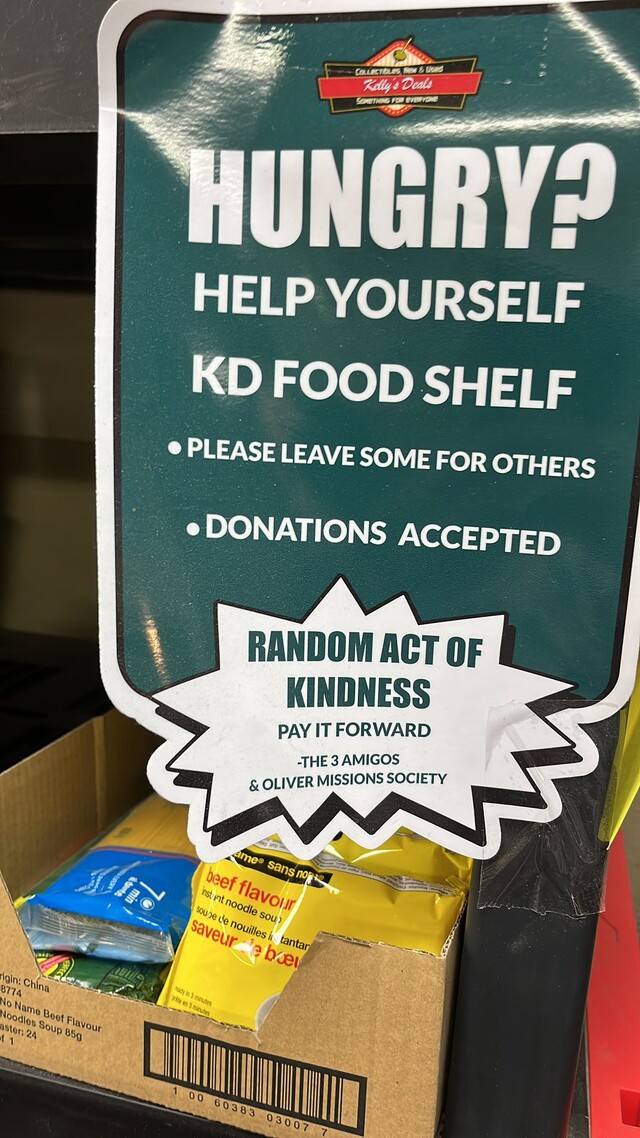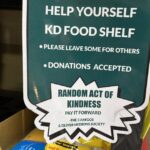A grassroots initiative in Oliver, British Columbia is tackling food insecurity head-on as local business owner Kim Miller launches a targeted donation drive focused specifically on protein-rich canned goods. The campaign addresses a critical gap in available food resources for vulnerable community members who rely on emergency food supplies.
“We’re seeing a consistent shortage of protein items on our community food shelf,” explains Miller, who operates Parch & Pickle, a retail establishment that has been housing a free food shelf since early 2023. “People donate pasta and sauce, which is wonderful, but protein is often overlooked and it’s what struggling individuals need most.”
The free food shelf, accessible 24 hours a day without questions or registration requirements, has become a vital resource for Oliver residents facing financial hardships. While the shelf regularly receives donations of non-perishable items, Miller notes that canned meats, fish, and beans—essential sources of protein—disappear almost immediately upon being stocked.
Recent economic pressures have exacerbated food insecurity throughout the Okanagan Valley. According to CO24 News data, food bank usage in British Columbia increased by nearly 32% in the past year, with rural communities like Oliver experiencing particularly sharp rises in demand.
“The anonymity of our shelf is crucial,” Miller emphasizes. “Many people experiencing food insecurity don’t want to be identified or face stigma. They can come at 2 a.m. if needed, taking what they require with dignity intact.”
Community response has been encouraging, with several local businesses joining the effort. Valley First Credit Union has established a collection point, and other merchants are following suit. Regional food security experts confirm that protein donations address a significant nutritional gap in emergency food provisions across Canada.
For residents looking to contribute, the most needed items include canned tuna, salmon, chicken, ham, beans, and peanut butter. Miller suggests that even small donations can make a substantial difference in the lives of neighbors struggling to meet basic nutritional needs.
The initiative highlights a broader concern about food accessibility in rural Canadian communities, where transportation limitations and fewer service options can compound challenges for vulnerable populations. Food security advocates point to community-led efforts like Miller’s as essential supplements to formal assistance programs.
As winter approaches and heating costs rise, putting additional pressure on household budgets, the need for protein-rich donations is expected to increase. The question remains: can community generosity keep pace with growing demand, or will more systematic solutions be required to address the root causes of food insecurity in small-town British Columbia?























